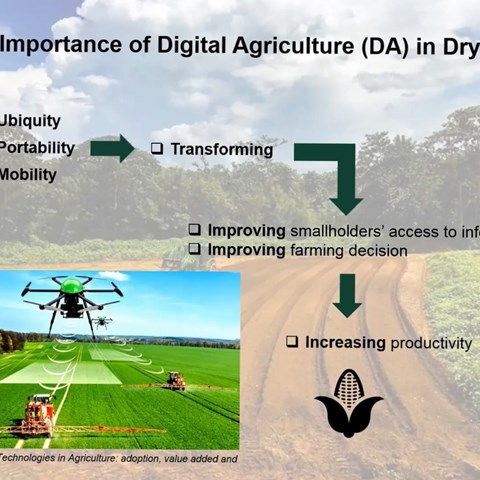(Nyhet på engelska)
In December 2020, SLU’s DeVilag team organized a series of webinars on the prospects of digital agriculture for enhancing sustainability and resilience of food systems in developing countries.
The series consisted of the following webinars "The era of artificial intelligence in agriculture: Towards food security in drylands"; "Environment & development nexus: Implications for agricultural and rural development in developing countries"; "Assessing the sustainability of agricultural systems: from field to global level" and "Digital soil mapping of soil variables: Applications for soil monitoring". These webinars are part of DeVilag project, an Erasmus+ project entitled "Steering Migration through Sustainable Development: Euro-Egyptian Program for Agriculture and Rural Development". SLU takes over the role in the WP4, building up the training programme to equip teaching staff from the Egyptian partner universities with skills that evolved from the prior skill gap assessment.
The webinar series brought together around 20 trainees of the teaching staff from the Egyptian partner universities. The first webinar (December 7th ) was given by Dr. Nasem Badreldin from Grassland Analytica and the Department of Soil Science from the University in Manitoba, Canada, who discussed the potentials of digital agriculture for enhancing the sustainability of agricultural systems in developing countries. In the second webinar (December 17th), Dr. Franklin Amuakwa-Mensah, from the Environment for Development Initiative of the University of Gothenburg in Sweden, discussed the “Environment & Development nexus” and the research and policy implications for agricultural and rural development in developing countries. The third webinar (December 21st) was led by Dr. Pierre Chopin, from the Department of Crop Production Ecology at SLU, who presented advanced approaches for assessing the sustainability of agricultural systems and shared interesting examples from ongoing projects in this field. The last webinar (December 23rd) was led by Dr. Ozias Hounkpatin, from the Department of Crop Production Ecology at SLU. The webinar focussed on the applications of digital mapping of soil variables for soil monitoring. The knowledge gained by the participants from these webinars are expected to provide the teaching staff of the Egyptian partner universities with knowledge and pedagogical skills and enable them to address different dimensions of sustainable agricultural and rural development.
